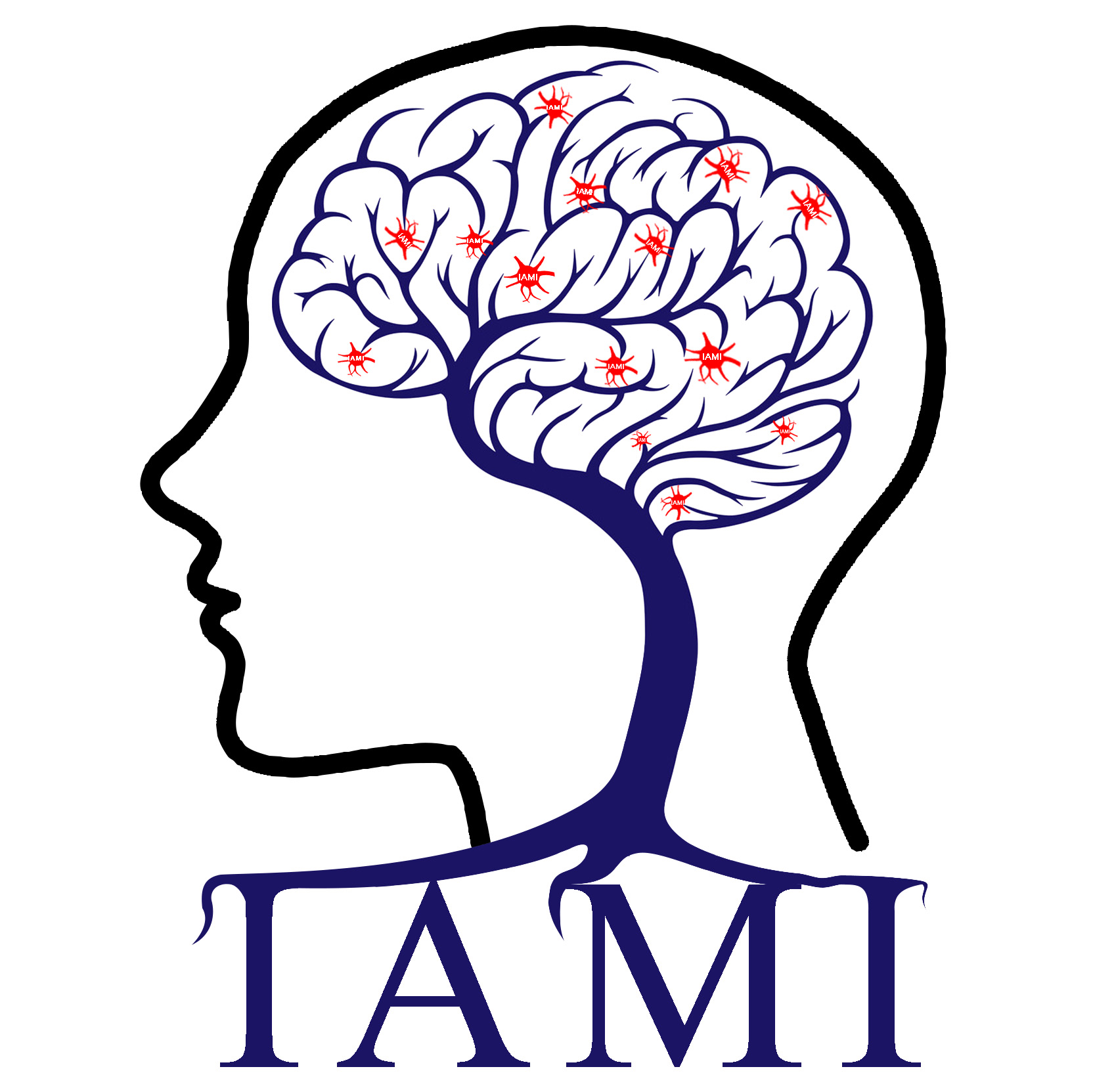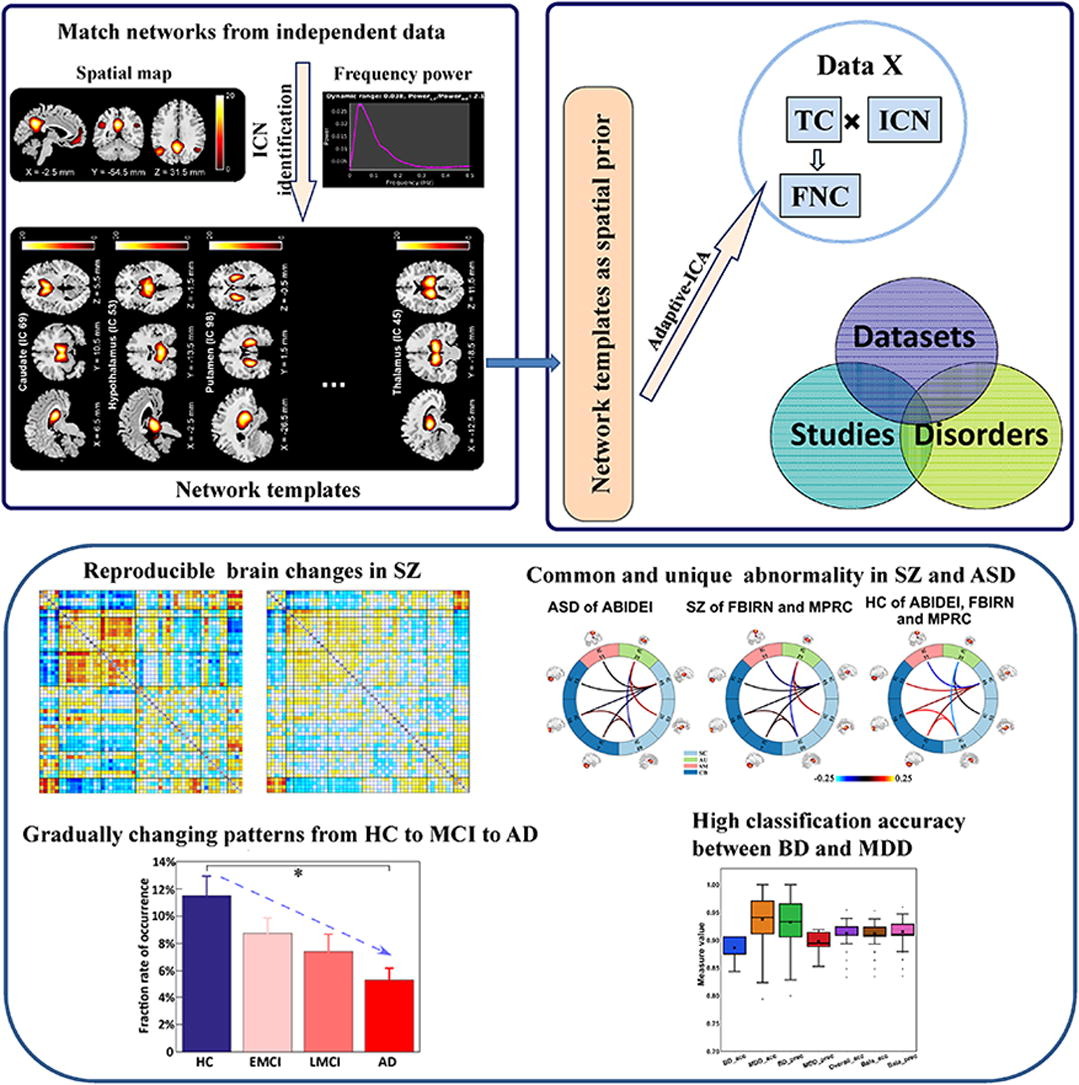
Yuhui Du Personal Website-Intelligent Analysis of Medical Image
Address:Taiyuan, China
Yuhui Du*, Zening Fu, Jing Sui, Shuang Gao, Ying Xing, Dongdong Lin, Mustafa Salman, Anees Abrol, Md Abdur Rahaman, Jiayu Chen, L. Elliot Hong, Peter Kochunov, Elizabeth A. Osuch, Vince D. Calhoun. NeuroMark: An automated and adaptive ICA based pipeline to identify reproducible fMRI markers of brain disorders. NeuroImage: Clinical, 2020, 28: 102375. (TOP journals, SCI division of Chinese Academy of Sciences: 2, impact factor: 4.881)
时间:2020-08-15 17:17:48 来源: 点击:[980]
Highlights
•Propose a new pipeline to link brain changes among different datasets, studies, and disorders.
•Identify reproducible biomarkers in schizophrenia using independent data.
•Find both common and unique brain impairments in schizophrenia and autism.
•Reveal gradual changes from healthy controls to mild cognitive impairment to Alzheimer’s disease.
•Obtain high classification accuracy (∼90%) between bipolar disorder and major depressive disorder.
Abstract
Many mental illnesses share overlapping or similar clinical symptoms, confounding the diagnosis. It is important to systematically characterize the degree to which unique and similar changing patterns are reflective of brain disorders. Increasing sharing initiatives on neuroimaging data have provided unprecedented opportunities to study brain disorders. However, it is still an open question on replicating and translating findings across studies. Standardized approaches for capturing reproducible and comparable imaging markers are greatly needed. Here, we propose a pipeline based on the priori-driven independent component analysis, NeuroMark, which is capable of estimating brain functional connectivity measures from functional magnetic resonance imaging (fMRI) data that can be used to link brain abnormalities among different datasets, studies, and disorders. NeuroMark automatically estimates features adaptable to each individual subject and comparable across datasets/studies/disorders by taking advantage of the reliable brain network templates extracted from 1828 healthy controls as guidance. Four studies including 2442 subjects were conducted spanning six brain disorders (schizophrenia, autism spectrum disorder, depression, bipolar disorder, mild cognitive impairment, and Alzheimer’s disease) to evaluate validity of the proposed pipeline from different perspectives (replication of brain abnormalities, cross-study comparison, identification of subtle brain changes, and multi-disorder classification using identified biomarkers). Our results highlight that NeuroMark effectively identified replicated brain abnormalities of schizophrenia across different datasets; revealed interesting neural clues on the overlap and specificity between autism and schizophrenia; demonstrated dimensional brain functional impairments present to varying degrees in mild cognitive impairments and Alzheimer's disease; and captured biomarkers that achieved high performance in classifying bipolar disorder and depression.
Graphical abstract


 Current location:
Current location: